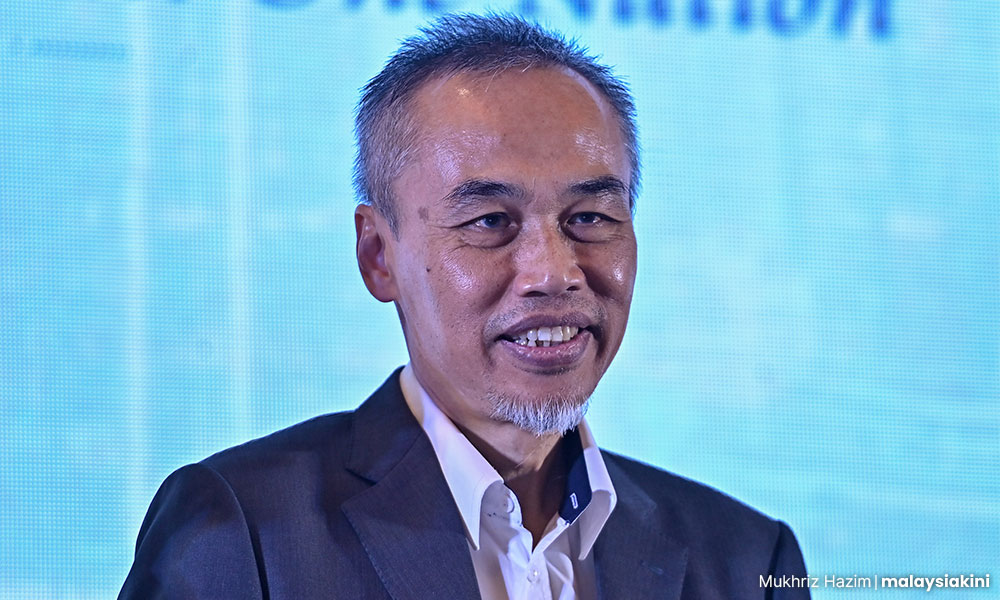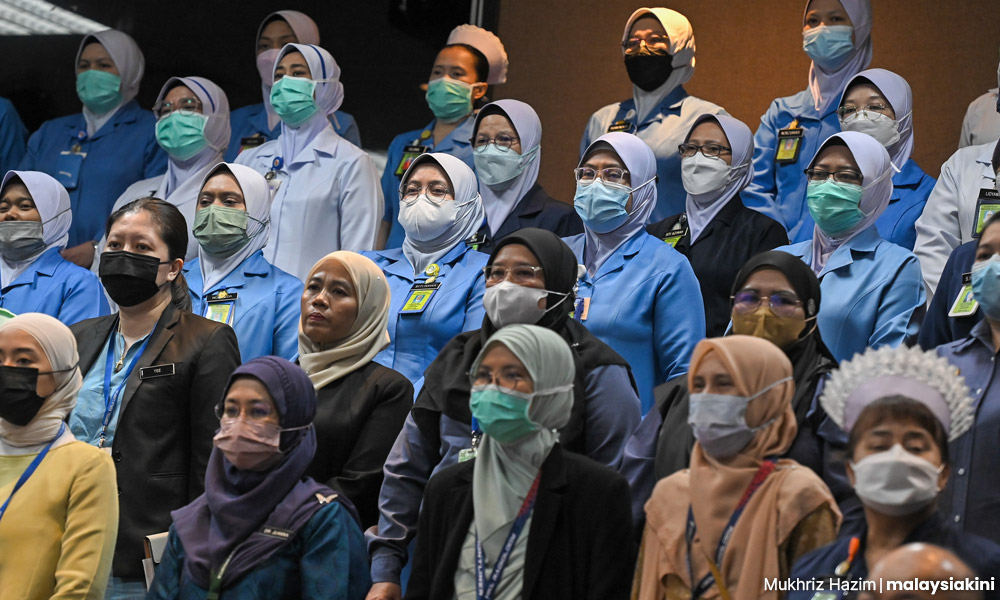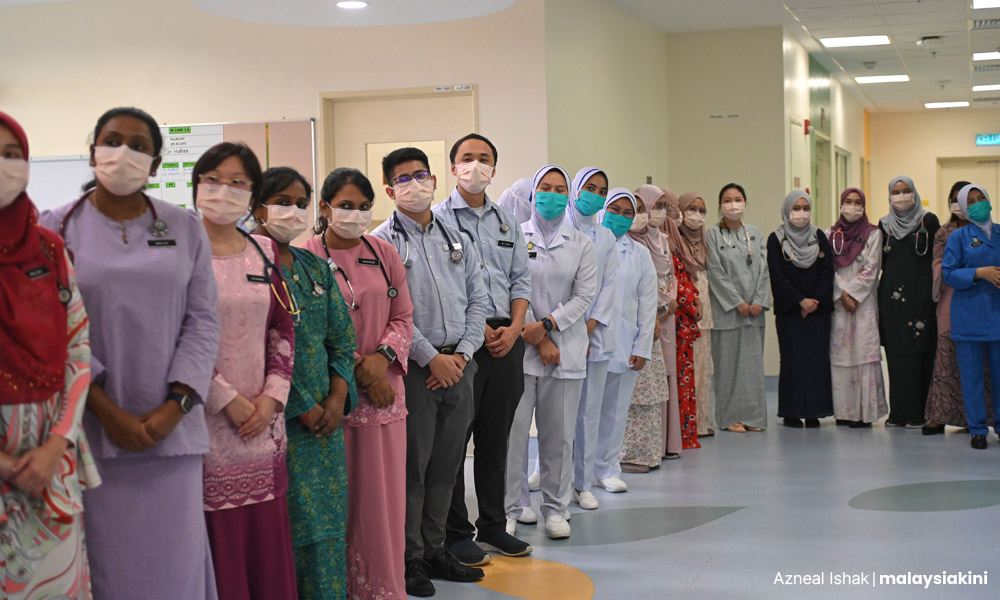KINIGUIDE | Over the past weeks, various quarters have locked horns about the issue of parallel pathways for medical specialist training.
This is after the government said it is looking to amend the Medical Act 1971 to accommodate such pathways.
What is the issue actually, how did it crop up and why are some people objecting to the law change? This Kiniguide explores.
What is a parallel pathway programme for medical specialist training?
This programme allows Malaysian healthcare professionals to seek specialist training for selected postgraduate qualifications abroad, to mitigate the shortage of specialists in Malaysia.
Why is this issue hitting headlines?
On March 20, four graduates of a parallel pathway training with the Royal College of Surgeons Edinburgh in cardiothoracic surgery filed a joint judicial review application in the Kuala Lumpur High Court.
Cardiothoracic surgery generally refers to surgery for the heart, lung, oesophagus and other related organs in the chest.
The judicial review was to contest the Malaysian Medical Council’s decision on Dec 21 last year to reject the graduates’ application to register themselves on the National Specialist Register (NSR).
The MMC reportedly refused the registration because it said the Fellowship of the Royal College of Surgeons of Edinburgh in Cardiothoracic Surgery (FRCS Ed) qualification is not recognised by the council.
Why did the MMC make this decision?
In a letter to the graduates on Dec 21, 2023, MMC chief executive Dr Mohamed Anas Mohamed Hussain cited Section 14B of the Medical Act.

The section states only practitioners with recognised specialised qualifications may be registered as specialists, health news website CodeBlue reported.
He also referred to a list of recognised postgraduate qualifications endorsed by the MMC in 2017, which does not include the FRCS Ed for cardiothoracic surgery.
In a press statement on March 25, health director-general Dr Muhammad Radzi Abu Hassan also said the FRCS Ed for cardiothoracic surgery was never among postgraduate qualifications endorsed by the government.
Who are the four graduates who filed the judicial review?
They are Dr Nur Aziah Ismail, Dr Syed Nasir Syed Hassan, Dr Chong Kee Soon and Dr Lok Yuh Ing.
Nur Aziah and Chong are employed at Institut Jantung Negara (IJN) while Syed Nasir and Lok are serving in the Health Ministry.
Are they the only health professionals mounting a suit over the matter?
No, according to CodeBlue, this is the third known lawsuit on this issue.
The other two are a lawsuit by a neurosurgeon with the FRCS Ireland qualification in neurosurgery and six pathology graduates in medical genetics from Universiti Sains Malaysia.
The High Court has granted leave for both of these judicial review applications.

Why did the four graduates pursue qualifications there when it was not recognised by the MMC?
In their court filing, they submitted that the MMC had repeatedly signalled that parallel pathway for surgery and the FRCS Ed is recognised.
This included a Nov 26, 2019 email by the then-chairperson of the MMC’s Medical Education Committee (MEC), Dr Victor Lim Kok Eow.
In his email to the Malaysian Association of Thoracic and Cardiovascular Surgery (MATCVS), he said the FRCS Ed qualification “is a recognised postgraduate qualification for registration with the National Specialist Registry.”
The graduates also said the MMC had published a list of recognised postgraduate qualifications which included the FRCS Ed on the NSR website.
This information was also circulated in two attachments in an email to stakeholders on May 9, 2023, and both attachments showed the FRCS Ed as a recognised qualification for NSR registration, they said as reported by CodeBlue.
However, in a letter to the health news website, an anonymous former MMC member said the Royal College of Surgeons of Edinburgh’s Cardiothoracic Surgery parallel training programme was “started without due process” by the MATCVS without seeking clarification from the MMC until 2022.
The ex-MMC member also said the Royal College of Surgeons of Edinburgh did not furnish its documents of recognition to the United Kingdom’s General Medical Council for the cardiothoracic surgery programme.
“It is not the duty of the MMC to tell programmes that they are not recognised. It is the duty of the organisers,” said the ex-member, who declined to be named following verbal attacks against colleagues who stated their views against the parallel pathway programme.
Meanwhile, Radzi, in a statement said the MMC denied that the FRCS Ed in cardiothoracic surgery was at any time recognised by the MMC.

What is the FRCS Ed qualification and is it granted by a credible organisation?
According to the British Council, FRCS is a professional qualification required to practise as a surgeon in the UK and the Republic of Ireland.
“Exams (written, oral and clinical) play a crucial part in the maintenance of standards.”
The FRCS Ed refers to the certification granted by the Royal College of Surgeons of Edinburgh, a professional organisation of surgeons.
RSC Edinburgh is the oldest surgical college in the world and was founded in 1505 by Royal Charter, according to its website.
Other FRCS qualifications are the FRCS Eng, FRCS Glasg and the FRCSI from the Royal College of Surgeons of England, the Royal College of Surgeons of Glasgow and the Royal College of Surgeons of Ireland respectively.
So are all parallel pathways for specialist training affected?
According to the MMC, it is not against parallel pathways for training and will not discontinue such avenues.
“MMC’s interest is in ensuring that the training programmes conducted in the country fulfil the relevant legal and statutory requirements.
In fact, there are several programmes in the parallel pathway which have been recognised by the MMC, while in the case of those still not yet recognised, the relevant bodies have been informed to take steps to fulfil the relevant legal requirements for accreditation and recognition,” Radzi said.

What is the govt doing about this?
The Health Ministry has set up a task force to study the issue.
The ministry also discussed the matter with the Higher Education Ministry, MMC and the Malaysian Qualifications Agency to find a joint solution to ensure graduates from parallel pathways meet prescribed standards to practise in Malaysia.
“The Higher Education Ministry is of the view that these students and graduates should not become victims of any technical issues that can be resolved,” Higher Education Minister Zambry Abdul Kadir said.
Health Minister Dzulkefly Ahmad also said the ministry is proposing amendments to the Medical Act to support parallel pathway trainees to be registered as specialists, pending cabinet approval and presentation in Parliament in June.
However, this has been met with objections from various parties.
Who is objecting to the amendment and why?
Several quarters, including those within the medical field, have objected to the proposal to change the law to facilitate parallel pathways for specialist training.
Among them is paediatric surgeon Dr Dayang Anita who said parallel pathway training is not equivalent to local university training.
“In the end, are we really producing safe specialists? We amend the law to let them in,” she said in an interview with CodeBlue.
One concern, she said, is that the training is run by “societies - which are not legally registered as higher education providers, but conducted through a memorandum of understanding with international colleges.”
As such, they are not equivalent to accredited local postgraduate courses, she said.
Malay Consultation Council education bureau chairperson Ibrahim Abu Shah also held a press conference to say “there is no need for such haram (illegal) programmes to be accredited.”
Ibrahim, who was vice-chancellor of Universiti Teknologi Mara, also claimed the FRCS Ed qualification “is not recognised by their own university”, but it is unclear which university he is referring to.
He also alleged that the ministry has been “misled” about the FRCS Ed or did not have all the full facts leading it to propose amending the law, Utusan Malaysia reported.
Ibrahim claimed Singapore and Australia do not practise parallel pathways for medical specialist qualification but this is not entirely true.
Australia provides a pathway for medical specialists who have overseas qualifications and want to practise in Australia, which outlines ways for which an overseas qualified specialist is assessed and can be registered to practise in the country.
Likewise, parallel pathway programmes for specialists are recognised by regulators in Singapore.

Who supports parallel pathways for specialist training?
Among vocal medical professionals speaking in favour of allowing parallel pathways for specialist training is Health Ministry nephrologist Dr Rafidah Abdullah, who noted that all her specialist training was conducted abroad.
Four senior specialists - Dr Musa Nordin, Dr Zulkifli Ismail, Dr Erwin J Khoo and Dr Timothy Cheng - in a statement noted that despite the various specialist postgraduate degree programmes, “at the present production rate, only 19 percent of the total doctors in the public sector are specialists instead of the targeted 30 percent.”
The specialists said the national postgraduate medical curriculum launched in 2021 can be used to provide a unified structure for specialist training through postgraduate degrees or through parallel specialist training pathways.
They also stressed that the issue with the surgical parallel pathways for training arose due to
“Two to three surgical-based pathway programmes poorly managed by the MMC” and does not apply to other specialities.
For example, they said, the UK Royal College of Paediatrics and Child Health formalised its work-based assessment in 2005, while Malaysia’s paediatrics parallel pathway followed suit five years later.
“Virtually all the other programmes had consolidated their curriculum training, postings, work-based assessments and exit criteria, among others, since 2014,” they said.
Meanwhile, the MATCVS claimed the MMC made a crucial decision not to recognise parallel pathways for cardiothoracic surgery “without a single cardiothoracic surgeon being present during the deliberation.”
Bagan MP Lim Guan Eng supports the MATCVS’ position arguing that the Royal College of Surgeons of Ediburgh’s pedigree is “unquestioned” in the medical field.
“Graduates of the parallel pathway programme are now serving in the best hospitals in the world, but face the risk of being disqualified as not good enough to serve at our local hospitals.
“What will happen then to all the patients at government hospitals awaiting life-saving surgery? Let us not sacrifice excellence and meritocracy for mindless bureaucracy.” - Mkini




No comments:
Post a Comment
Note: Only a member of this blog may post a comment.